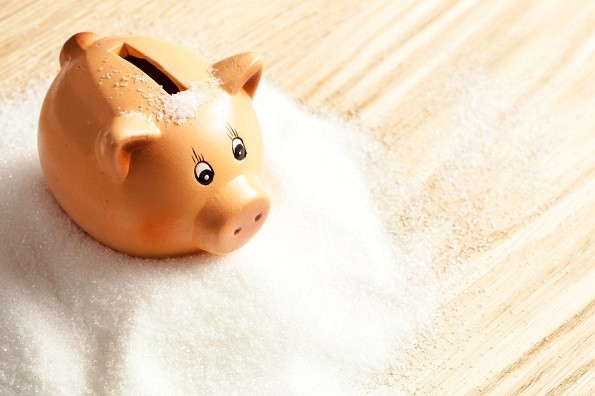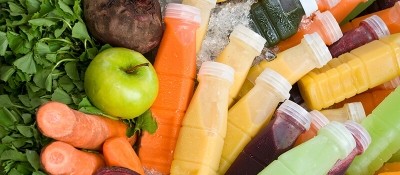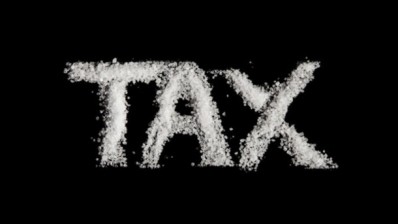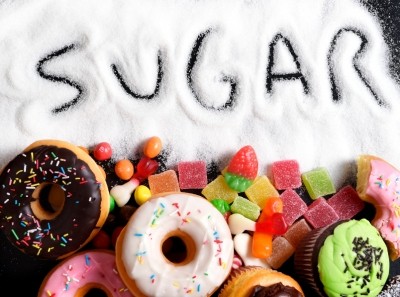UK sugar tax: comment and analysis

The UK’s decision to implement a sugar tax came as something of a surprise, given that the government ruled out a sugar tax just six months ago.
As in many other countries, the UK has seen plenty of debate around the concept of a sugar tax, with strong feelings both for and against.
The industry has slammed the levy(you can read more about its reaction here), saying that it singles out the soft drinks industry (no other food categories are included in the tax). It says it is the one sector which has consistently reduced sugar intake in recent years. Coca-Cola GB believes its actions are already doing more to reduce sugar and calorie intake than a tax ever will.
But others have welcomed the tax, with celebrity chef Jamie Oliver calling for other countries to follow the UK’s lead.
Meanwhile, some commentators have cautiously welcomed the tax, but warned that other measures are also necessary if obesity is to be tackled.
The Institute of Economic Affairs: ‘No evidence taxes have the slightest effect on obesity’
The Institute of Economic Affairs, a UK think tank, says the sugar tax will hit the poor without offering any benefits in tackling obesity.
"It is astonishing that the Chancellor has announced a tax on sugary drinks when there is no evidence from anywhere in the world that such taxes have the slightest effect on obesity,” said Mark Littlewood, director general of the Institute of Economic Affairs.
“Whether dressed up as a direct tax or a levy on industry, the effect will be that the government will be picking the pockets of the poor for no benefit.”
Jamie Oliver: ‘Australia, Canada, Germany – pull your finger out!’
Celebrity chef and media personality Jamie Oliver has been a high profile voice leading calls for a sugar tax in the UK, with his petition last year gaining more than 150,000 signatures.
UK sugar tax
Two bands: total sugar content above 5g/100 ml; & sugar content above 8g/100 ml.
Levy expected to equate to 6p to 8p per 330ml can.
Pure fruit juices and milk-based drinks excluded.
Revenue from levy will fund sport in schools.
Levy will come into effect in April 2018.
Details in full can be found here.
In welcoming the UK sugar tax, he said the decision was “massive” and “a profound move that will ripple around the world.” Speaking in a video on his Facebook page, he challenged other countries to follow suit.
“If you’re looking at this from other countries, Germany, pull your finger out; Australia, pull your finger out, Canada, pull your finger out. It’s about time your governments got on this,” he said.
British Heart Foundation: ‘Steps will be instrumental in reducing risk of potentially fatal diseases’
The British Heart Foundation has welcomed the sugar tax, as well as the budget’s decision to raise tobacco tax.
Simon Gillespie, Chief Executive of the British Heart Foundation, said, “Lowering sugar intake through a levy on sugary drink companies will help stem the nation’s obesity crisis, while increasing tax on tobacco will boost quitting rates and stop people from taking up the deadly habit.
“These steps will be instrumental in reducing people’s risk of developing potentially fatal diseases like heart disease, stroke and diabetes.”
Food Standards Scotland: ‘Tax alone will not address the immense challenge’
Food Standards Scotland is the public sector food body for Scotland, focusing on safety and standards. It has welcomed the sugar tax as a ‘first step’.
Its research has suggested sugar taxation would lead to a reduction in purchases proportionate to the level of tax applied, and that a tax of 10% to 20% would be necessary to have a significant impact on purchases, consumption, and ultimately population health.
Geoff Ogle, chief executive, said: “By 2030 obesity levels for Scotland are currently projected at 40% of the total population so tackling our diet is an urgent priority.
“While this positive step can make a significant contribution to improving Scotland’s diet and has proved successful in countries such as Mexico, it alone will not address the immense challenge in front of us, and other actions will be required.”
Epidemiology expert: ‘The devil is in the detail’
Dr Nita Forouhi, programme leader, MRC Epidemiology Unit, University of Cambridge, has welcomed the sugar tax, but says wider measures are necessary to tackle obesity.
“Our research has contributed to the body of evidence on the adverse health effects of sugary drinks. But the devil is in the detail. More information will be needed to understand if or how the levy of a tax targeted at producers and importers will impact on consumer behavior.
“While it is a step in the right direction, we must not lose sight of the fact that a levy is one element of a broader strategy that is necessary to tackle obesity.”
Economist: ‘We need better understanding of why people make poor dietary choices’
Professor Richard Tiffin, Professor of Applied Economics at the University of Reading, said the levy is likely to be passed onto consumers.
“This is a revenue-raising measure and it is pleasing to see that revenue from the tax will be spent on measures that may have a more significant impact. The measures being proposed are somewhat blunt however, and will probably have the biggest impact on those children and young adults that are already participants in sporting activities, rather than those who do nothing.
“The evidence base is weak, and we need better understanding of the reasons why people make poor dietary choice to design really effective policies using this new revenue stream.
“The evidence on the impacts of this kind of levy on soft drinks manufacturers is also weak. It is likely that some part of the tax will be passed on to consumers, but it not clear how much. Nor is it clear to what extent the manufacturers will be prepared to reformulate.”









